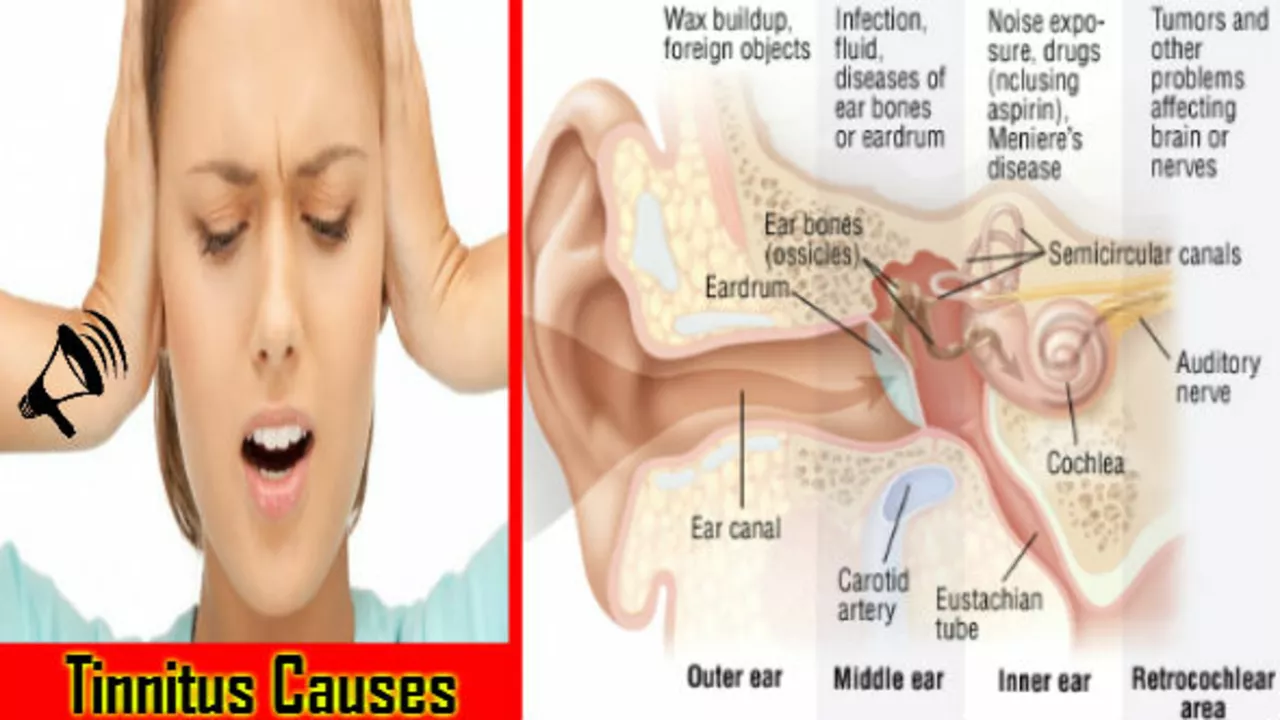Tinnitus: Fast, Practical Help for Ringing in the Ears
Tinnitus — a ringing, buzzing, or whooshing in the ears — is common. About 1 in 5 adults notice it at some point. It’s rarely life‑threatening, but the sound can be annoying, distracting, and even make sleep or concentration hard. This page gives clear, useful steps you can try now and explains when to get medical help.
What usually causes tinnitus
Most tinnitus comes from the ear or the hearing system. Common causes you can check for right away:
- Earwax buildup. Blocked ears can make sounds louder inside your head. A quick ear check or cleaning at a clinic often fixes it.
- Noise exposure. Loud concerts, machinery, or headphones at high volume can trigger temporary or lasting tinnitus.
- Age-related hearing loss. As hearing declines, the brain can create phantom sounds to fill missing input.
- Medications. High doses of aspirin, some antibiotics (like aminoglycosides), loop diuretics, and certain chemotherapy drugs can cause or worsen tinnitus. Don’t stop meds without talking to your doctor.
- Ear infections, TMJ problems, or blood flow issues. Pulsatile tinnitus (a rhythmic whoosh matching your heartbeat) often points to circulation causes and needs prompt evaluation.
What you can try tonight and this week
Start with simple, low-risk actions that often help reduce the impact of tinnitus:
- Protect your ears. Avoid loud places and use earplugs if you must be around noise.
- Add background sound. A fan, white-noise app, or low-level music can make the ringing less noticeable, especially at night.
- Check for earwax. If your ear feels blocked, see a clinician for safe removal rather than using cotton swabs.
- Manage stress and sleep. Stress and poor sleep make tinnitus feel worse. Try a consistent bedtime routine, relaxation breathing, or short walks to calm your nervous system.
- Avoid sudden caffeine or nicotine changes. These don’t cause tinnitus for everyone, but large swings can increase awareness of the sound.
If tinnitus lasts more than a few days, is very loud, comes after head injury, follows sudden hearing loss, or is one-sided or pulsatile, see a doctor. Your clinician may do an ear exam, hearing test (audiogram), and sometimes imaging or blood tests to find a treatable cause.
Treatment focuses on the cause when possible (removing wax, changing a medication, treating an infection). For persistent tinnitus, hearing aids, sound therapy, tinnitus retraining therapy, and cognitive behavioral therapy (CBT) help many people. There’s no one-size-fits-all cure, but most people learn to reduce the sound’s impact and sleep and focus better.
Want help figuring out what to try first? Ask your primary care doctor or an audiologist about a quick hearing test and whether your medications or earwax could be the issue. Small changes often bring noticeable relief.

- Oct 21, 2025
- SkyCaddie Fixer
- 11 Comments
How Tinnitus Affects Concentration and Focus - Causes, Symptoms, and Coping Strategies
Explore how tinnitus interferes with concentration and focus, the science behind the distraction, and practical strategies to regain mental clarity.

- May 12, 2023
- SkyCaddie Fixer
- 16 Comments
The Connection Between Propranolol and Tinnitus: Causes and Solutions
As a sufferer of tinnitus, I recently came across some interesting information about the connection between Propranolol and this frustrating condition. Propranolol is a beta-blocker commonly used to treat high blood pressure and anxiety. However, it has been found that it can sometimes cause or worsen tinnitus in certain individuals. Thankfully, there are alternative medications and treatments available if you're affected by this side effect. I'll be exploring these options in my upcoming posts, hoping to provide relief for those struggling with tinnitus.
